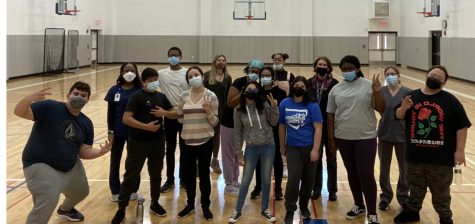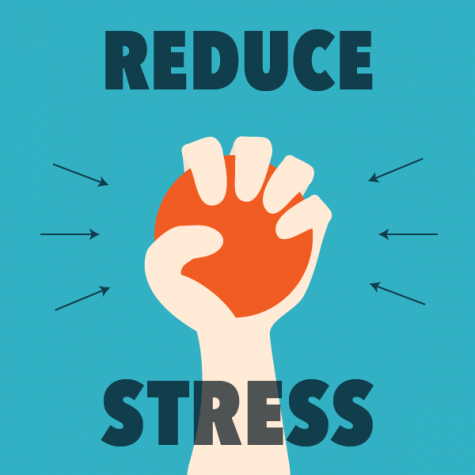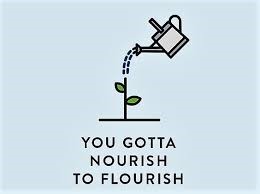Students’ Perspective on Mental Health
Related Stories

Source: https://www.trendhunter.com/trends/eye-art
Social media, the news and our loved ones all tell us about the importance of maintaining good mental health.
But what is mental health and how does it affect our school?
After the Student Government sent out a six-question survey for its Wellness Initiative, The Rostrum decided to do a little research before conducting a follow-up survey to thoroughly explore the mysterious and complex topic of mental health.
The Rostrum needed to understand what mental health truly encompassed.
So, what is mental health?
The U.S. Department of Health and Human Services describes it as “our emotional, psychological, and social well-being…It affects how we think, feel, and act,” and it also determines how one can, “handle stress, relate to others, and make choices.”
With that being said, a person with good mental health would make good choices, handle stress well, and overall do well emotionally. A person having difficulty with their mental health may make harmful choices, handle stress poorly, and may struggle emotionally.
Some people’s mental health issues come from their family history, while others struggle due to specific life experiences. For our students, the two most common contributors to their mental-health issues are school and personal issues.
In the Student Government’s Wellness Initiative survey earlier this year, most students rated their levels of stress an eight out of ten. The Rostrum’s survey, which was conducted in March and had 145 respondents, further explored those findings and how they play a role in student life.
When asked how motivated they are to go to school, 23% of students responded that they had no motivation, 19% said that they were perfectly fine going to school every day, and the rest fluctuate based on the kind of day they’re having. That means that for most of our students, it can sometimes be difficult and emotionally draining to have to wake up in the mornings and go to school.
When asked about their productivity, the results are very similar. More students have a difficult time being productive than those who don’t, and 73% of students’ productivity varies based on the day they’re having.
This all the more proves one constant of metal health: its inconsistency. Mental health and well-being is entirely subjective, meaning not everyone with mental-health issues experiences the same problems, traumas, stresses, or even healing processes.
Since the concept of mental health is so fickle, the Centers for Disease Control and Prevention took the time to emphasize some of what is usually overlooked when observing qualities of human life. The CDC emphasized the importance of a person’s overall well-being. defined as having positive emotions and moods–like contentment and happiness–the absence of negative emotions, and satisfaction with life, among other factors.
The CDC said “many indicators that measure living conditions fail to measure what people think and feel about their lives, such as the quality of their relationships, their positive emotions and resilience, the realization of their potential, or their overall satisfaction with life.”
The more attention placed on the issue of people’s overall well being, the easier it would likely be to improve and understand mental health.
So what can students do if they’re struggling with mental-health issues?
Since mental health is so vast and complex, there isn’t a one-size-fits-all solution, but the students who took the survey have some advice:
“Don’t be afraid to talk to someone when you’re having trouble with mental health.” -Desiree Wilkes
“I say to make a routine that works for you, go outside, and write down five realistic goals every day to complete.” -Anonymous Student
“Keep moving forward, because although times are tough right now, they are not permanent.” -Vinesah Mumar
“For anyone struggling right now, try to stay as positive as possible. It is okay to feel how you do and cry and things, but keep your head up as much as you can. Every day, eat some more food until you’ve eaten at least three full meals. Do something that you love that you could progressively get better and better at. Your mind might get down, but you have to stay strong! You can do this! Even if you don’t believe in yourself, lots of people believe in you! You got this!” -Anonymous Student
“Find some way to relax (meditation, yoga, listening to music, etc.)” -Meghan Smith
“Just getting up in the morning is good enough. Don’t push yourself if you have nothing left to push with. Just find strength eventually, at your own pace.” -Anonymous Student
Your donation will support the student journalists of West Haven High School. Your contribution will allow us to purchase equipment and help us take educational field trips.








